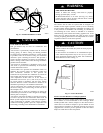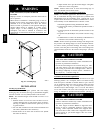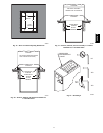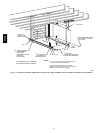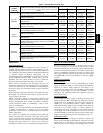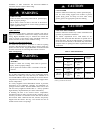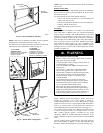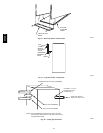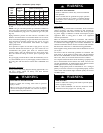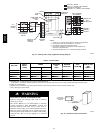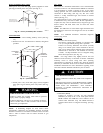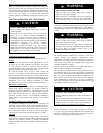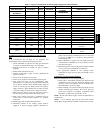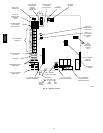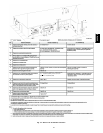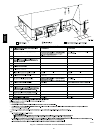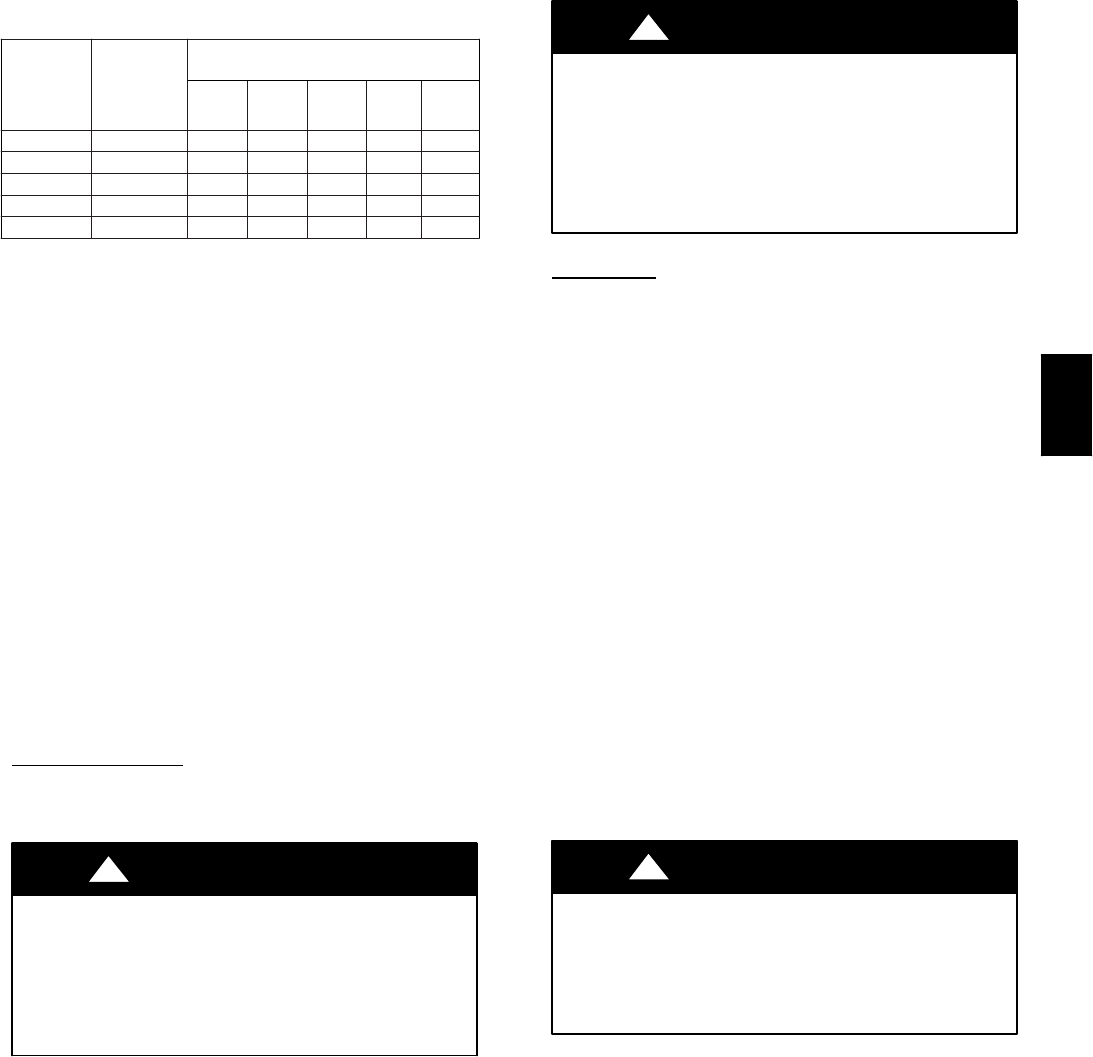
23
Table 3 – Maximum Capacity of Pipe*
NOMINAL
IRON
PIPE
SIZE
(IN.)
INTERNAL
DIAMETER
(IN.)
LENGTH OF PIPE (FT/M)
10/
3.0
20/
6.1
30/
9.1
40/
12.2
50/
15.2
1/2 0.622 175 120 97 82 73
3/4 0.824 360 250 200 170 151
1 1.049 680 465 375 320 285
1 --- 1/4 1.380 1400 950 770 660 580
1 --- 1/2 1.610 2100 1460 1180 990 900
* Cubic ft of gas per hr for gaspressure of 0.5 psig (14---in. wc)or less, and a pressure
drop of 0.5---in. wc (based on a 0.60 specific gravity gas). Ref: Table 9---2 NFPA
54---2002.
NOTE: The gas valve inlet pressure tap connection is suitable to
use as test gauge connection providing test pressure DOES NOT
exceed maximum 0.5 psig (14--in. wc) stated on gas valve. (See
Fig. 60.)
Piping should be pressure and leak tested in accordance with
NFGC in the United States or CAN/CSA--B149.1--05 in Canada,
local, and national plumbing and gas codes before the furnace has
been connected. If pressure exceeds 0.5 psig (14--in. wc), gas
supply pipe must be disconnected from furnace and capped
before pressure test.
If test pressure is equal to or less than 0.5 psig (14--in. wc), turn
off electric shutoff switch located on gas valve before test. It is
recommended that ground joint union be loosened before
pressure testing. After all connections have been made, purge
lines and check for leakage at furnace prior to placing it into
service.
The gas supply pressure shall be within the maximum (13.6--in.
wc) and minimum (4.5--in.wc) inlet supply pressures marked on
the rating plate with the furnace burners ON at HI--HEAT and
OFF.
Electrical
Connections
See Fig. 29 for field wiring diagram showing typical field 115--v
and 24--v wiring. Check all factory and field electrical
connections for tightness.
ELECTRICAL SHOCK HAZARD
Failure to follow this warning could result in personal
injury or death.
Blower access door switch opens 115 --v power to furnace
control. No component operation can occur. Do not bypass
or close switch with panel removed.
!
WARNING
UNIT MAY NOT OPERATE
Failure to follow this caution may result in intermittent
unit operation.
Furnace control must be grounded for proper operation
or control will lock out. Control is grounded through
green/yellow wire connected to gas valve and burner
box screw.
!
WARNING
115--v Wiring
Before proceeding with electrical connections, make certain that
voltage, frequency, and phase correspond to that specified on
furnace rating plate. Also, check to be sure that service provided
by power supply is sufficient to handle load imposed by this
equipment. Refer to rating plate or Table 4 for equipment
electrical specifications.
Make all electrical connections in accordance with National
Electrical Code (NEC) ANSI/NFPA 70 --2005 and any local codes
or ordinances that might apply. For Canadian installations, all
electrical connections must be made in accordance with Canadian
Electrical Code CSA C22.1 or authorities having jurisdiction.
Field--supplied wiring shall conform with the limitations of 63_F
(33_C) rise.
The furnace must be electrically grounded in accordance with
local codes; or in the absence of local codes, with the National
Electric Code ANSI/NFPA 70 and/or the Canadian Electric Code,
CSA C22.1, Part I, if an external electrical source is utilized.
Use a separate branch electrical circuit containing a properly sized
fuse or circuit breaker for this furnace. See Table 4 for wire size
and fuse specifications. A disconnecting means must be l ocated
within sight from and readily accessible to furnace.
NOTE: Proper polarity must be maintained for 115--v wiring. If
polarity is incorrect or furnace is not grounded properly, furnace
control status code indicator light will flash rapidly and furnace
will NOT operate.
FIRE HAZARD
Failure to follow this warning could result in personal injury,
death, or property damage.
Do not connect aluminum wire between disconnect switch
and furnace. Use only copper wire. (See Fig. 30.)
!
WARNING
355CAV



